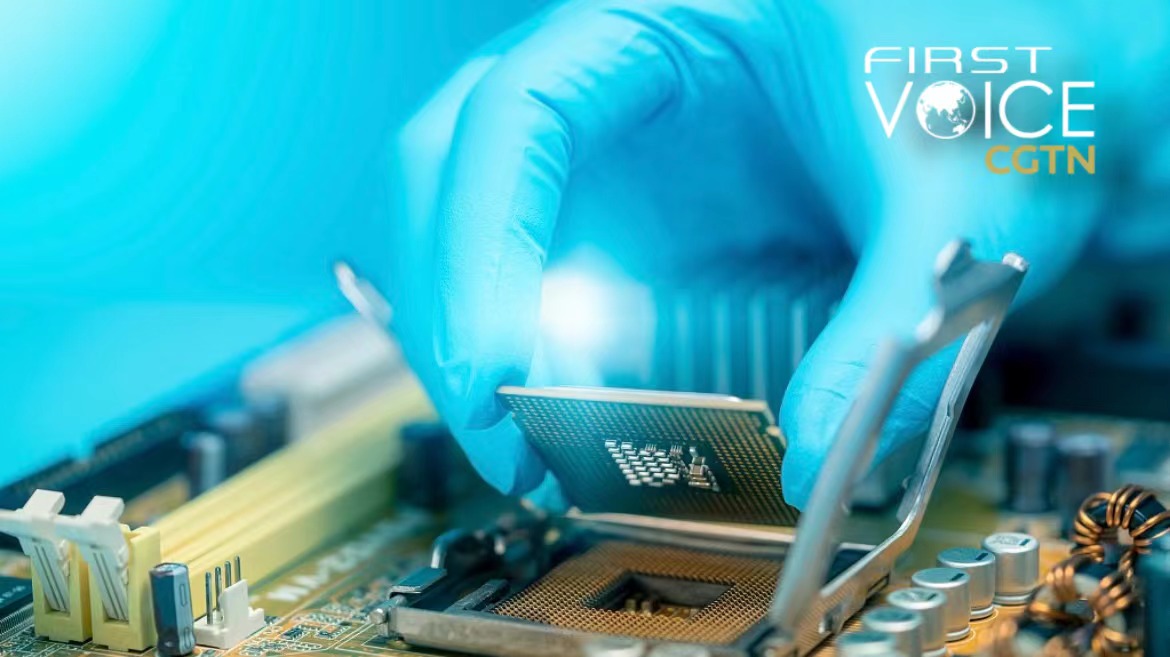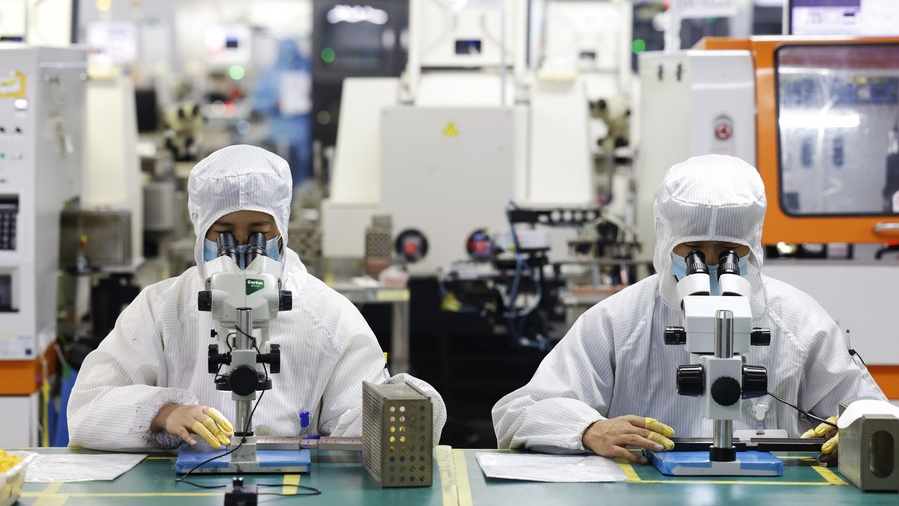
Editor's note: CGTN's First Voice provides instant commentary on breaking stories. The column clarifies emerging issues and better defines the news agenda, offering a Chinese perspective on the latest global events.
Japan's export restrictions on 23 types of semiconductor manufacturing equipment took effect on July 23. Except for those bound for 42 countries and regions designated as friendly, exports of the 23 items will require individual approval from Japan's Ministry of Economy, Trade and Industry.
Although the ordinance doesn't name any specific country as a regulatory target, the move is widely believed as an attempt to line with U.S. efforts to keep high-end semiconductors out of China's hands. In October last year, Washington introduced export controls on shipments of cutting-edge chips to China that could be used in military and artificial intelligence systems, and asked Japan and the Netherlands – two of the world's biggest suppliers of semiconductor manufacturing equipment – to follow suit. Japan's export curbs means the country is joining the U.S. to kick China out from the global semiconductor industrial chain.
This chip crackdown on China will backfire.
To begin with, Japan cannot afford to lose the Chinese market. According to the Semiconductor Industry Association, China holds the No.1 position in the semiconductor market, with sales of more than $180 billion last year – one-third of the global total. The Chinese mainland was the top destination for Japan's semiconductor equipment manufacturers in 2022, accounting for around a third of the country's total chip-making equipment exports, official data shows.
Losing access to the Chinese market could mean a heavy blow to Japanese chipmakers. With fewer profits to support their research and technology innovation, Japanese semiconductor firms will find their global competitiveness crippled in the long term. This is not good news for the future of the country's semiconductor industry.
In addition, endeavors to decouple the global semiconductor supply could trigger chipmakers – if they have to pick one between the two – to choose China over Japan. With advantages in upstream raw material products, China is irreplaceable in chip production. According to research firm Antaike, China produces over 90 percent of the world's gallium and 60 percent of the world's germanium – key materials in chip-making.
China's efforts to be self-reliant in the high-tech industry means picking China over Japan will be more likely. Despite Washington's attempt to stifle China's technological growth and kick the country out from the global semiconductor industrial chain, the Chinese government has been striving to break bottlenecks and expand its domestic market. China's National Integrated Circuit Industry Fund, for instance, has invested heavily in the country's semiconductor industry in recent years. Surpassing Japan and the U.S. in chip making is an achievable goal for China.

Workers make chips for export at an electronics company in Sihong, east China's Jiangsu Province, February 23, 2022. /Xinhua
Workers make chips for export at an electronics company in Sihong, east China's Jiangsu Province, February 23, 2022. /Xinhua
In fact, calls by American tech giants for the Biden administration to refrain from restrictions on chip sales to China has already revealed the senselessness of the anti-Beijing curbs. Nvidia CEO Jensen Huang warned in the Financial Times that a chip war with China risks "enormous damage." Japan should at least listen to these voices before blindly dancing to the U.S. tune.
The semiconductor industrial chain embodies global collaborations that require contributions from all countries concerned. History has repeatedly proven that any attempt to decouple the global supply chain will lead to multiple lose-lose scenarios. In spite of China's strong opposition, Japan's insistence on export restrictions on 23 types of semiconductor manufacturing equipment is highly likely to invite countermeasures from Beijing. In the end, there would be no winner.
Regrettably, the need to court Washington and help sustain U.S. hegemony apparently carries much more weight than its long-term domestic interests for the Japanese government.
(If you want to contribute and have specific expertise, please contact us at opinions@cgtn.com. Follow @thouse_opinions on Twitter to discover the latest commentaries in the CGTN Opinion Section.)